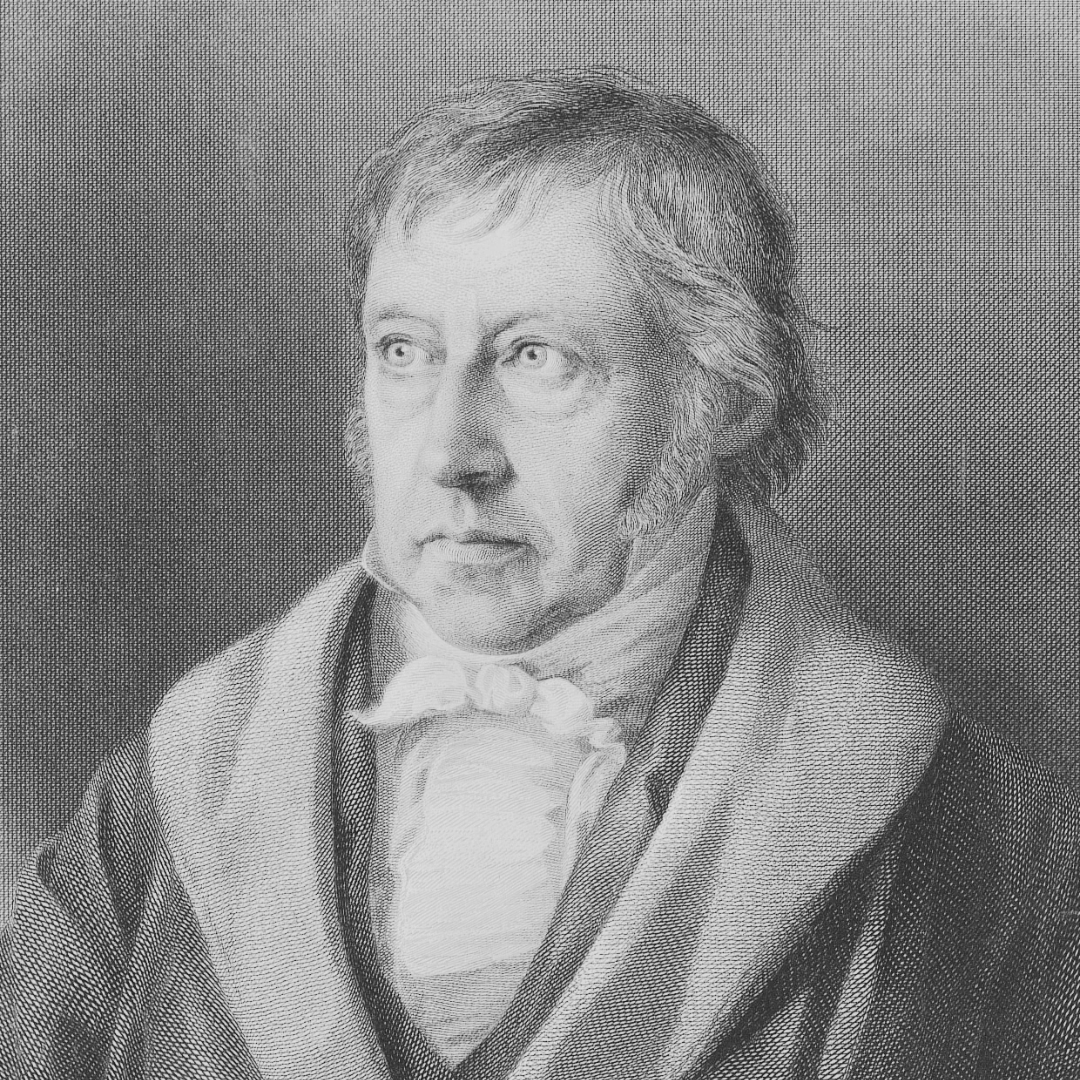In Hegel’s “Introduction to the Philosophy of History,” Hegel makes the claim that “Only the will that is obedient to the law is free,” (42). There are many things about this claim that I highly disagree with, mainly due to the fact that I believe that the individual has more freedom in their primitive element than in the civilized state.
Hegel believes that the law of the State is the epitome of humanity, that its law represents the best interests of the individuals of the State, and of the human Spirit itself. I would argue that the individual is never truly free, due to the fact that, by nature, humanity is subjugated to the basic needs of survival — of hunger, of thirst, maybe even sexual desire — however within the State, these basic needs become complicated within the rules/laws that “must” be conformed to in order to fit in with the society, or else face consequence. These consequences may come in forms of social alienation, charges, or jail time. That being said, obedience to law is subordination, it limits and restricts the individual from what little freedom they already have.
The human species by nature, like many other living beings, must succumb to their basic needs. We must follow the laws of our nature in order to survive; we must eat, we must drink water, we must find warmth and shelter, or else perish. This need to persevere may extend to the innate need for us to procreate, to generate offspring in order for the species itself to survive. The primitive being must eat to avoid hunger, they must drink in order to replenish their thirst, they must find warmth and shelter in order to protect themselves from the elements; and although these are things their body demands in order to live, they have the choice to eat or drink whatever they want, and they have the choice to make their camp wherever they want. And if they truly want, they may steal their goods from the Other; they may also act upon their violent urges in order to obtain what they desire or need. Otherwise, the only thing that stops the primitive being from doing whatever they want, is themselves. They run freely, able to do whatever they want when they want, only abiding by their own hungers and urges. For the primitive being, there would have been no rules or laws that could limit their abilities, no obstruction towards the need to fulfill their appetites or gratifications.
However, within the civilized state, these hungers get complicated. The hungers and appetites of the individual get obscured under the conduct of the State and it’s laws. Not only must the being abide by their own bodies, but they must also abide by the civilized laws that suppress how they should alleviate their hungers and appetites.
According to Hegel, Freedom is not a power that necessarily exists in nature, it is something that must be achieved through an endless process involving the disciplines of knowledge and will, otherwise the original state of nature is nothing more than a grounds for injustice, violence, untamed natural drives, inhuman acts, and unwarranted emotions (43). He argues that Freedom is a universal essence that involves law and morality, and has an object and an aim as a self developing thought rather than merely a sense experience (44). The State being a concept that is reflective of humanity and is meant to provide for its people, and by abiding by its laws, we would thereby be abiding to ourselves, being self sufficient and free by doing so. Hegel states that freedom can be actualized once one’s impulses, desires, and passions are reserved. It is through the State that freedom is actualized and is enjoyed within its means. For Hegel, the State is the realization of freedom, for it is an absolute end-goal and it exists for its own sake.
That being said, according to Hegel, the primitive being is not free, for they are naturally subjugated to “barbaric” conditions linked to a turmoil of the passions and violence. However, it is only through the State, wherein which the processes of knowledge and will are enforced to restrain natural instincts and urges so that one may be free of them. For the State and its laws are merely a manifestation of the common subjective and universal will (respectively, the will of the individuals within the State and that of Reason), resulting in the rational laws of ethics, that the State itself aims to reinforce (41).
Not only is Hegel’s claim that “Only the will that is obedient to the law is free,” (42) completely contradicts itself, but his argument for it seems quite obtuse. Hegel claims that the goal of the State is to void of all “barbarism,” where the State is in the process that aims to relinquish all of the “injustices, violence, untamed natural drives, inhuman acts, and unwarranted emotions” found in nature. And through its universal ethics and reason, freedom can be achieved. However, what about all the injustices and violence the “civilized” societies made towards the “barbaric” ones? For instance, Europe has been a colonial power throughout history — from France to Spain to England to Portugal to Germany — these countries have expanded their borders to other lands in order to gain access to resources, land, and the people themselves, to increase their own power and wealth. Historically, European powers have murdered, raped, and torchured the Native people from the lands they subjugated in order to assert their dominance; they continued to invade land and steal resources, then colonized the Indigenous people in order to exploit their labour for profit. Sometimes the colonizers would even use their religion in order to justify their violence against the colonized, calling them heathens for not knowing the word of the Lord. European powers would even justify their violent actions by calling the native people “savages” or “barbarians” for not initially looking or acting like the Europeans have; because they knew their acts were inhumane and heinous, and they needed to label the Other as something morally inferior to them in order to vindicate themselves into the delusion that what they were doing was just.
One may argue that Hegel was aware of injustices mentioned above, and that his argument may not have applied to the history of European colonization because the colonized were never “barbarians” themselves; pre colonized States already had established, pre-existing, rules and moral conduct before the European invasions, and were free in their own accounts as they were obedient to their own laws of State.
However, what then of these colonized states when Europe did grab a hold of them? Can the colonized states still be considered free in accordance with Hegel's standards and concepts of freedom under the same State that colonized them? If the individual suffered the worst amounts of violence under the same State that subjugated them to its laws, is the individual considered free? In this case, I do not believe that the individual that is compliant to the State and its laws would be considered free. My point here is that what was considered as a civilized State still submits to the barbarisms of injustices and violences, even though its savagery is something it tried to resist. In my opinion, a very ironic case that does follow suit Hegel’s argument.
My argument comes full circle when I say that we only obtain some freedom due to the natural laws our mortalities subjugate us to and the State only complicates whatever little freedom we have from what naturally limits us. The State (what is civilized) seems to find itself in a constant struggle between the natural environment (what is primitive), because humans will always ultimately be confined to the limits of our bodies. We can never be truly free because we are subjected to the bodies that limit our will, however there is still some freedom as the individual is still able to do whatever they can physically endure. I believe the State complicates whatever freedom we have because it governs us with laws that conducts how we are suppose to exercise our “freedoms”. As opposed to simply eating to relieve a hunger, we must get a job to pay for food. In a “civilized State” we are presented with so many products that may please the consumer’s appetites, all advertised as conveniences in order to satisfy our natural inclinations, which allows us to focus our efforts on whatever leisures we want to do, as opposed to - for example - going out and hunting for our food instead. However, in order for us to partake in the conveniences of the civilized State, we must abide by the laws that enable these luxuries. We now must work for our natural inclinations another way (as opposed to working on directly finding and capturing our food, water, etc.): we must find a job in order to receive income, we must receive an income in order to pay for food, water, maintain shelter, etc. Of course, an individual may choose to live off the land as our ancestors have, but doing so would still require licenses (hunting or fishing license, for example) and/or permits from the government to do so.
An individual has the freedom to choose whether or not they want to be a part of the State, although they do so at the cost of convenience. To be a part of the State is to abide by laws that limit and constrain certain freedoms, however it would be in return for the convenience of time and physical efforts. Not only are there legitimate laws that the State explicitly refers to, but there are also certain social conformities within the society that one may need to abide to in order to socialize. Humans are social creatures and the need to be a part of a group like-minded individuals — the need to socialize — is innate. Yes, there are a lot of choices that arise when one is a part of the State, however, there are just as many choices outside of the State.
Because the amount of choices an individual has both within and outside of the state are, more or less, the same, the significant difference in its conduct is the fact that the State explicitly declares consequences that could limit one’s freedoms even more — whether it be time in jail, or fines due that limit how one may spend their money. As a result of these laws put in place, the individual is unable to act the way they would if they were outside the State. That is not to say that I, myself, completely disagree with the laws of the State, that I would rather be outside of the State than within it; on the contrary, I freely choose to be a part of the collective in order to partake in its conveniences. However, as an individual obedient to the laws of the State, I do recognize that there are certain freedoms that I cannot exercise living within it, therefore, the will that is obedient to the law is not as free as the will outside of the State.
Works Cited
Hegel, G. W. F. An Introduction to the Philosophy of History. Translated by Leo Rauch, Hackett, 1995.





